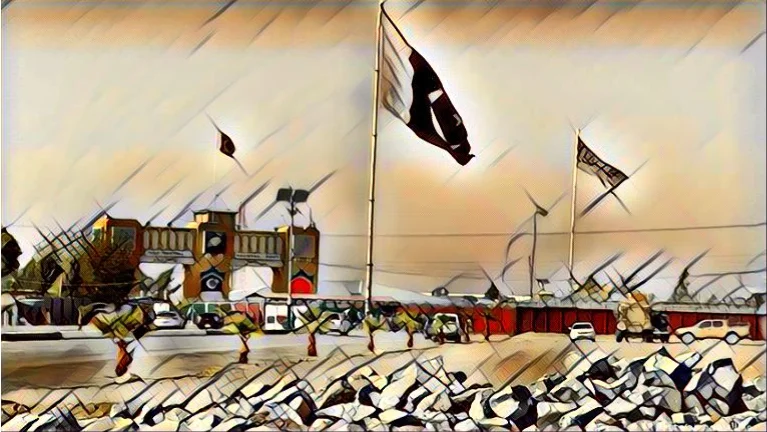With Donald Trump’s re-election, his vision for making America “greater than ever” signals a renewed focus on economic strength and national security, with implications that extend beyond U.S. borders, especially for Afghanistan. Trump’s commitment to an “America-first” policy suggests a security-centered approach toward foreign involvement, particularly in regions like Afghanistan, where past policies leaned towards minimizing direct U.S. engagement.
America First: Priorities Shift Back Home
Trump’s economic plans focus on growth, job creation, and self-sufficiency. His administration’s expected focus on tightening immigration and reducing foreign aid aligns with a shift towards an insulated U.S. economy. Under his first administration, Trump reduced refugee admissions significantly, slashing them from 110,000 in 2017 to 18,000 by 2020—a trend that could continue, affecting the thousands of Afghan refugees currently on temporary protection status in the U.S.
Security-Centric Policies: Implications for Afghanistan
Trump’s prior approach to Afghanistan culminated in the 2020 U.S.-Taliban peace deal, leading to the withdrawal of U.S. troops by 2021. This decision reduced the U.S. presence from roughly 13,000 troops in early 2020 to near-zero, with a focus on counter-terrorism through intelligence rather than ground operations.
A second Trump term will likely extend this hands-off approach, focusing primarily on curbing extremist threats that could impact U.S. interests directly, rather than broader nation-building efforts.
Also See: Russia Claims US Interference in Afghanistan’s Fragile Stability
The Afghan Humanitarian Crisis and Reduced U.S. Aid
Afghanistan faces one of the most severe humanitarian crises globally, with the United Nations estimating that 28.8 million Afghans—about two-thirds of the population—are in need of urgent humanitarian assistance. Since the U.S. pulled out troops in 2021, more than $2 billion in aid has been allocated to Afghanistan. Trump’s re-election may mean a reduction in U.S. aid, further intensifying Afghanistan’s dependence on international organizations and neighboring countries. During his previous term, foreign aid budgets were consistently cut, emphasizing military over humanitarian assistance.
Immigration: Afghan Refugees Face Uncertain Prospects
One pressing issue for Trump’s new term is the fate of Afghan refugees currently in the U.S. on temporary protected status, a population totaling around 70,000. Given Trump’s historically restrictive immigration policies, pathways to permanent residency for these Afghans remain uncertain. A harder stance on immigration could result in significant challenges for Afghan refugees, whose resettlement and safety have been in jeopardy since the IEA’s return to power in 2021.
![Afghan refugees in U.S. [Brookings]](https://pkafgyouthforum.com/wp-content/uploads/2024/11/2021-09-01T000000Z_1228623178_MT1ABCPR778676015_RTRMADP_3_ABACA-PRESS.webp)
Regional Influence: New Power Dynamics in Afghanistan
As U.S. involvement in Afghanistan wanes, other regional players are poised to step in. China, Russia, and Pakistan have vested interests in Afghan stability, each pursuing a role in its future. China’s Belt and Road Initiative, a $60 billion investment project, includes infrastructure in Afghanistan and signals Beijing’s intent to increase its influence as U.S. assistance recedes. Similarly, Russia’s diplomatic engagement with the Islamic Emirates highlights Moscow’s intent to expand its influence in Central Asia. Pakistan, meanwhile, maintains a strategic interest in Afghanistan’s stability, but its involvement would likely align more with security concerns than nation-building.
A New Chapter for Afghanistan
Trump’s America-first agenda suggests a future where Afghanistan must increasingly rely on regional allies and non-U.S. assistance.
With limited U.S. support for its development and humanitarian needs, Afghanistan faces the dual challenge of fostering internal resilience and navigating new geopolitical dynamics.
Trump’s foreign policy will likely reshape Afghanistan’s future toward one of self-reliance, balanced by influence from neighboring powers and regional players looking to fill the void left by America’s retreat.
This article reflects the author’s perspective and not the official views of the Pak-Afghan Youth Forum (PAYF).



